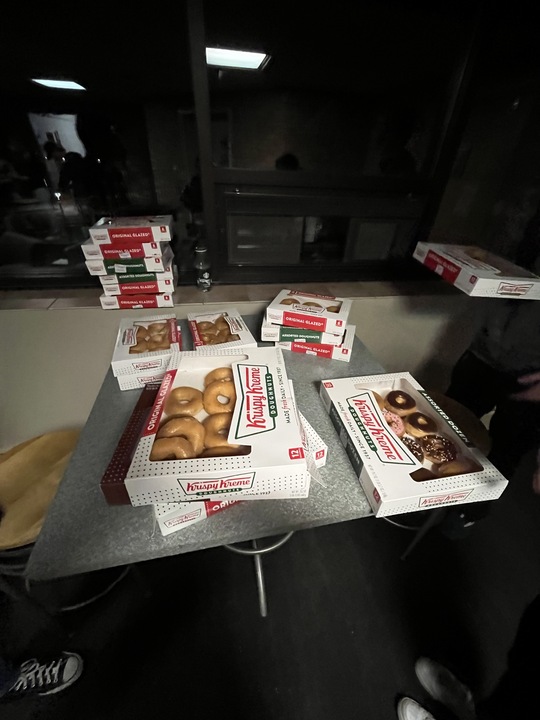Dumpster diving at Calvin has persisted across time and social groups as a fun way to bring people together, reduce waste and cost-effectively “shop.”
“Open access to dumpsters in Michigan effectively means it’s legal to take things from it,” according to Cassie Demlow, a junior studying environmental health and conservation. It only becomes illegal when dumpsters are locked or if there is a no-trespassing sign.
Demlow began dumpster diving during her freshman year while living on first van Reken. “It was suggested as a fun excursion, like community bonding for the floor,” Demlow told Chimes. “We went to Krispy Kreme, and we got a lot of donuts and brought them back for everyone.”
That experience got her hooked; since then Demlow talked about finding all sorts of things in store dumpsters, from live plants and office supplies to Aldi’s bacon-wrapped scallops.
“We’re mostly in it for produce from grocery stores,” Demlow said. Her house “has calculated that we’ve saved about $1,000 last semester on getting most of our produce from the dumpster, which is a lot for a college student.”
According to Demlow, sometimes there is just one piece of fruit in a whole bag that has gone bad, something visually weird with the produce, or the store overstocked and had to throw some of it out. All of these create instances where otherwise okay produce has to get tossed by stores and can be safely taken by dumpster divers.
When it comes to dumpster diving food, certain processes must be followed to ensure safety. Divers don’t dig too far down into the dumpster, but instead grab “food in bags fairly close to the surface that you can tell has been kind of just placed in there,” Demlow said. After retrieving the food, Demlow and her housemates check for punctures in the produce (they can allow bacteria inside), take out any rotten food and clean it well.
The other big safety concern, according to Demlow, is with things that can spoil: meat, dairy and other refrigerated products. “In the winter, we’re normally able to say it’s been 32 degrees or below for the past however many hours, [so] we think this is safe.” Demlow told Chimes, but “You do need to be careful.”
“We also feel good about it as a sustainable practice, stopping this food kind of at its last point before it goes to a landfill,” Demlow said. According to Barbecue Lab’s statistics, 1.3 billion tons, or a third of all food gets wasted. As much as 30% of the food in the United States alone gets thrown away before being eaten. Not only does it get wasted but, “when it’s in the landfill and it doesn’t have any air to decompose with, it’ll decompose anaerobically and it’ll produce methane, which is a very harmful greenhouse gas,” according to Demlow.
Dumpster diving for non-food items can be fun as well. Ella Lans, a sophomore on the sustainability floor, also noted that dumpster diving for returnable cans from the trash is “a good way to bring in some money.” Jordan Fridsma, a sophomore, told Chimes about finding things like perfectly good discarded clothes as well as a lap desk while dumpster diving during move-out at the end of the school year.
Dumpster diving is not only fun for those who do it, but saves money while using resources more responsibly. “For people who want to do it,” Demlow said. “I would say bring a headlamp, bring hand sanitizer, be willing to get in the dumpster and take a shower afterward.”
Chimes’ Ethan Meyers contributed to this story.






